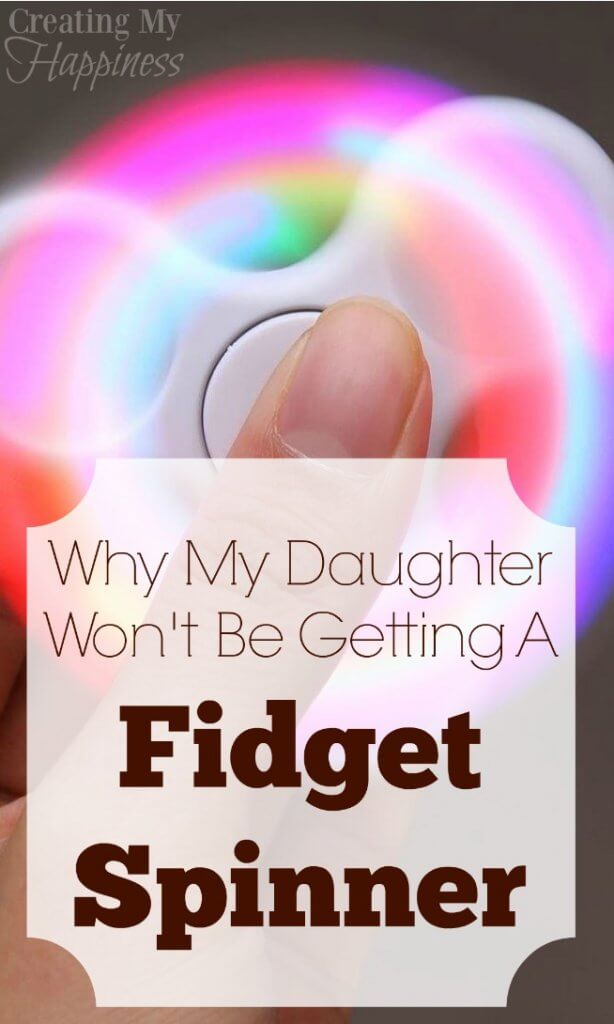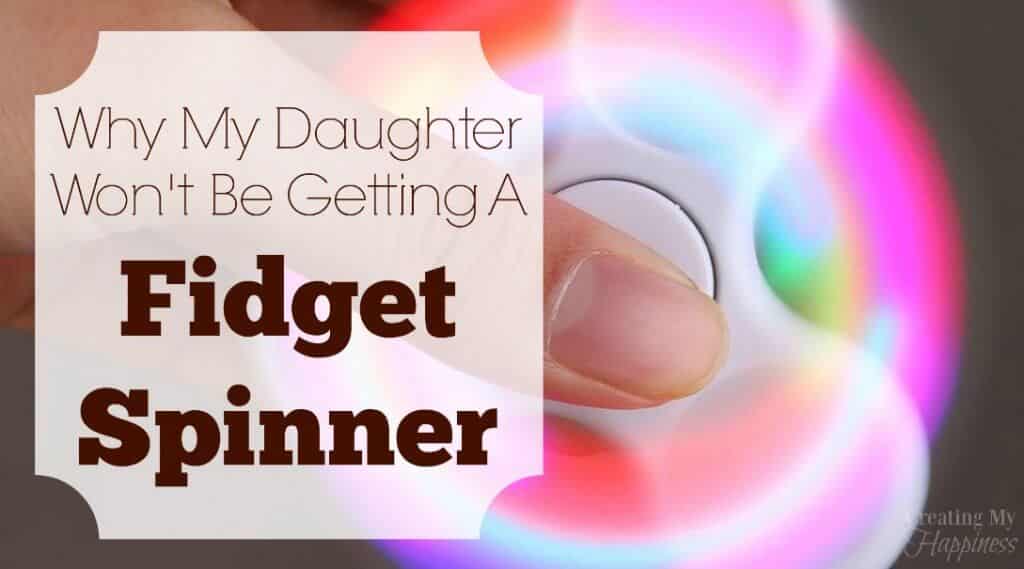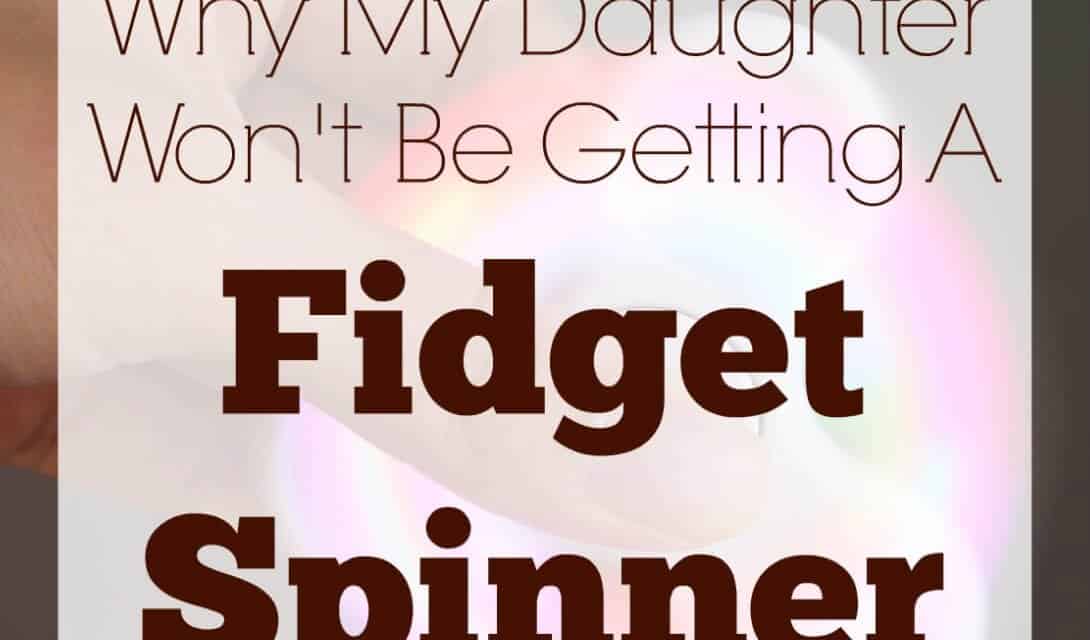Ah, the fidget spinner craze. You see them everywhere, and everyone has an opinion, and it tends to depend on how spinners entered your life. As a parent of a child with attention issues, I fully appreciate the calming influence a fidget can bring (even if I don’t understand it myself). As a teacher, I am completely overwhelmed by the level of distraction these particular fidgets bring to the classroom.

At 6 years old my daughter is already showing signs of ADHD. Things that interest her hold her attention with such intensity she’s often unaware of the world around her. When working on tasks she’s not interested in, keeping her focused is like fighting a rising tide.
That said, she will NOT be getting a spinner fidget.
Distraction
For my child, this item would be a toy and would only serve to distract her. Instead of giving her an outlet for pent-up energy, her mind would be completely consumed by watching the fidget. How do I know this? I know my child.
Proper Use
I can already see this spinning fidget flying across the room. “Here, catch!” “Let’s pretend it’s a frisbee.” It would be left on the floor, in the sink (because she loves to wash her toys), and everywhere else. How do I know this? I know my child.
No Toys in School
Our school has a “no toys” policy that is strictly enforced. And while spinners can be used for some children as a legitimate tool to aid with focus, as I said above, for my kid it would be a toy. How do I know this? I know my child.
What’s the Real Problem?
I don’t blame the kids for latching on to this spinner craze. They really are pretty cool little gadgets. And they’re allowed in school when no other toys are? Awesome!
And let’s face it, the people who market these little gizmos are geniuses. I mean, who doesn’t want their kid to have better focus in class? Parents read articles, or see stories on the news, or here from Mr. So-and-So down the street that little Johnny is finally listening in class because of this amazing spinning gadget. Of course our first response as parents is, “I need to get one for my kid, too!”
The problem is that not every kid needs a fidget to pay attention. In fact, the vast majority of kids are able to pay attention just fine, and spinners are just going to be a distraction. Even for kids who do have attention issues, the spinner is only 1 option out of MANY that are available, and it may not be the best option for your kid.
Know Your Child
However well-intentioned, allowing your child to bring a spinning fidget to school when it is not needed is probably doing more harm than good. For one thing for many children, they’re nothing but a distraction. Additionally, the sheer magnitude of spinners and the level of distraction they are creating in the classroom is leading teachers to put an outright ban on them, meaning kids who really do need them are being denied access, too.
How Do You Know?
Well, first and foremost, know your child. Know their strengths and weaknesses (yes, your angel has weaknesses) and how they truly behave in school. Don’t know? Ask your child’s teachers! Teachers are a fantastic resource for whether or not a fidget would be beneficial or distracting to your child.
If you’re still not sure, try them out in a real-world situation. Have your kid try a fidget in church or during their sister’s dance recital. Watch how they react. Are they mesmerized by the spinning, or are they absent-mindedly spinning while they focus on what’s in front of them? However they react, is that how you want them to behave in class?
If after you seek the input of your child’s teachers, and observe them during a focus-intense activity with a fidget, you truly believe that a fidget would benefit them in the classroom, the next step is to find the right one. You can see a selection of fidgets here.
What are your thoughts on the spinning fidget craze?






